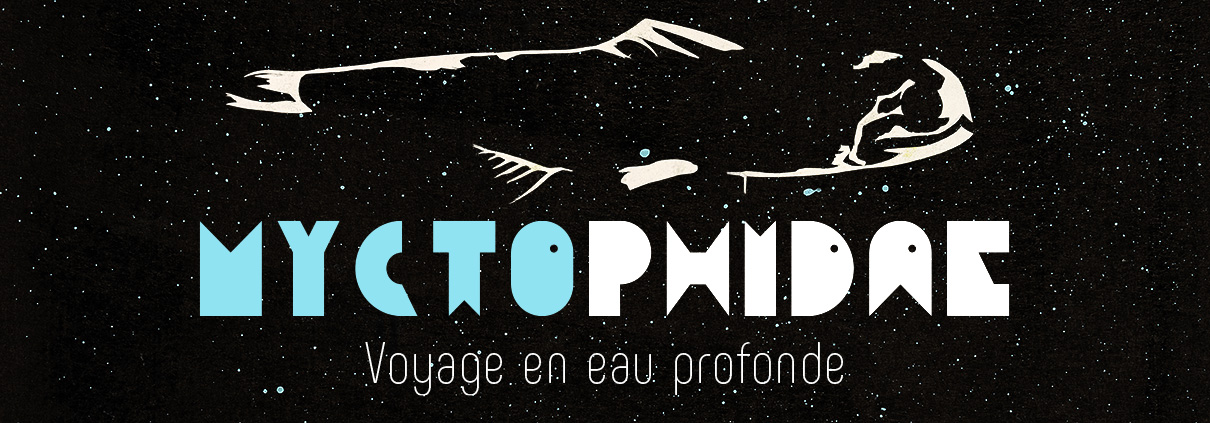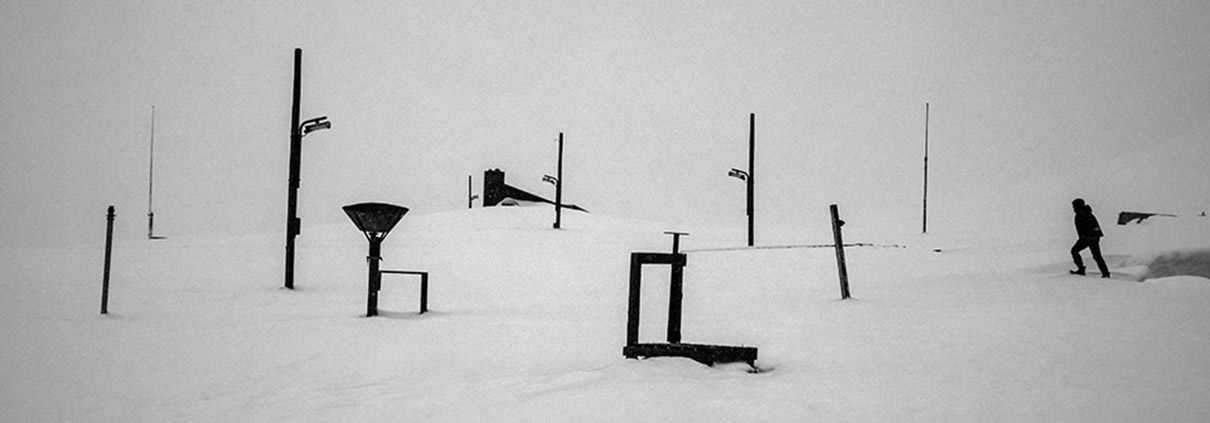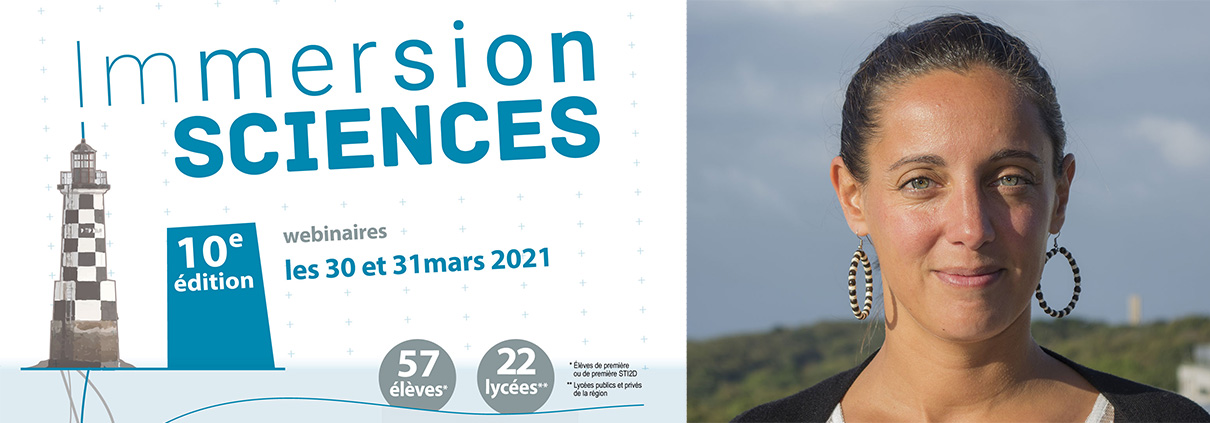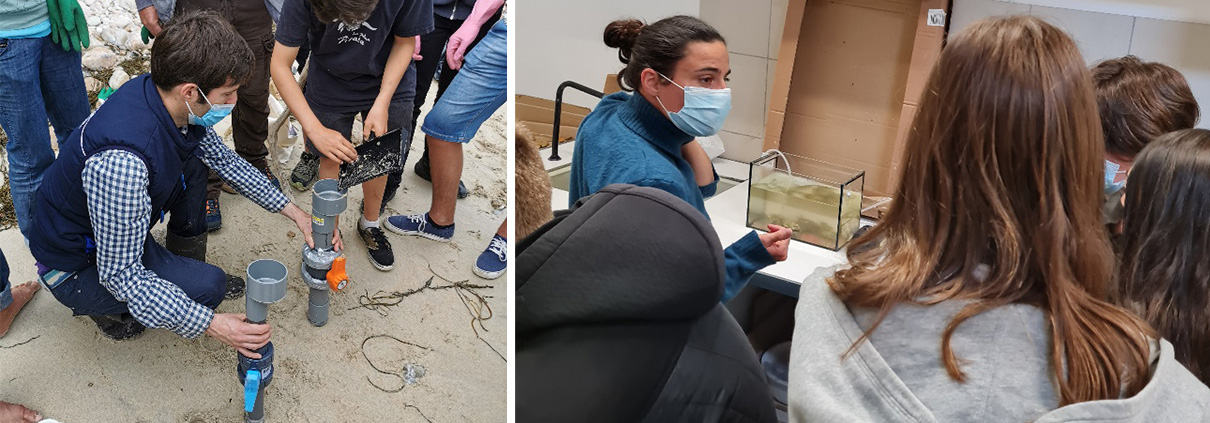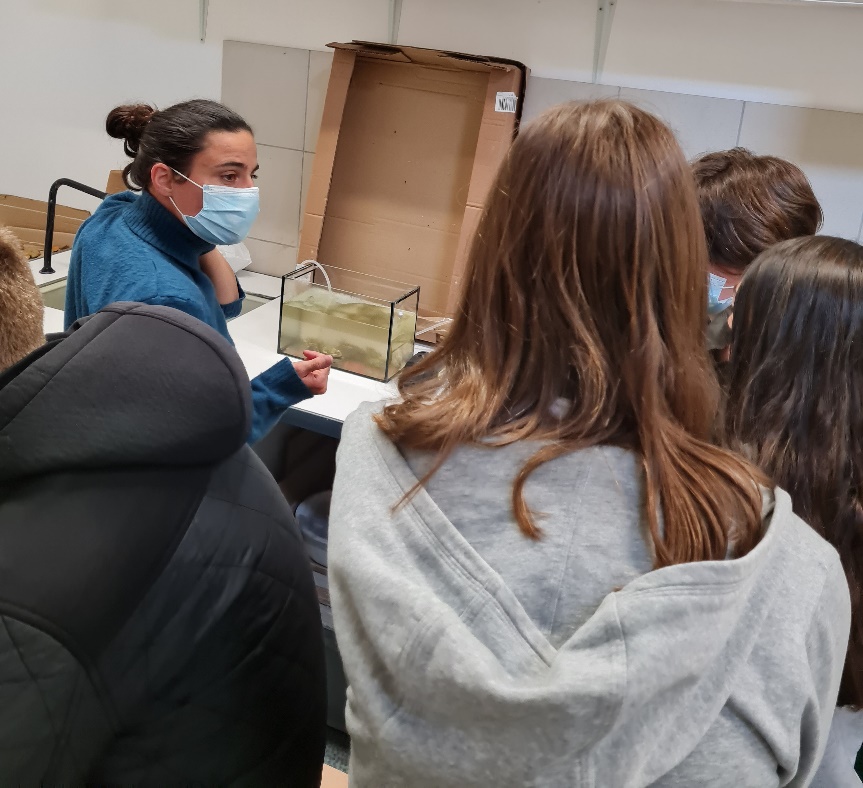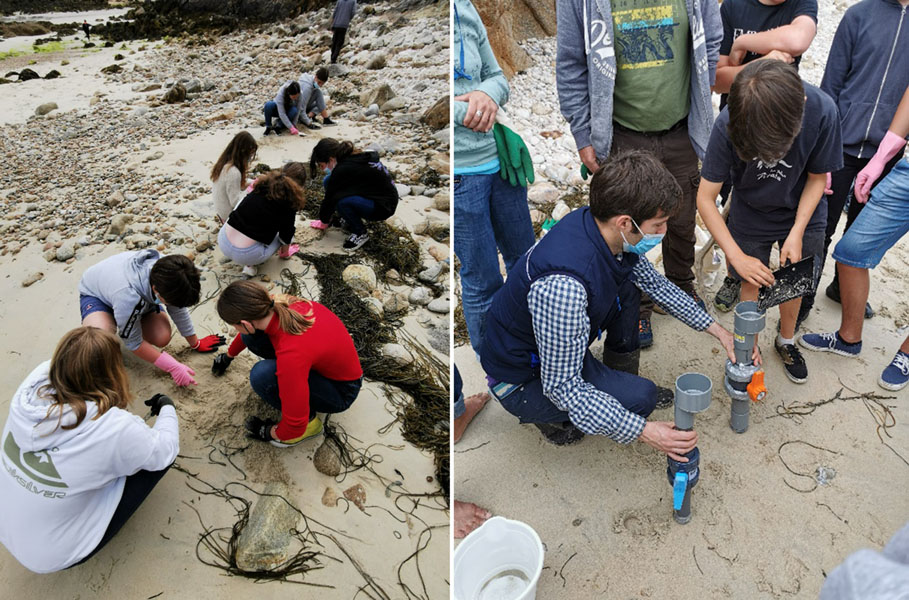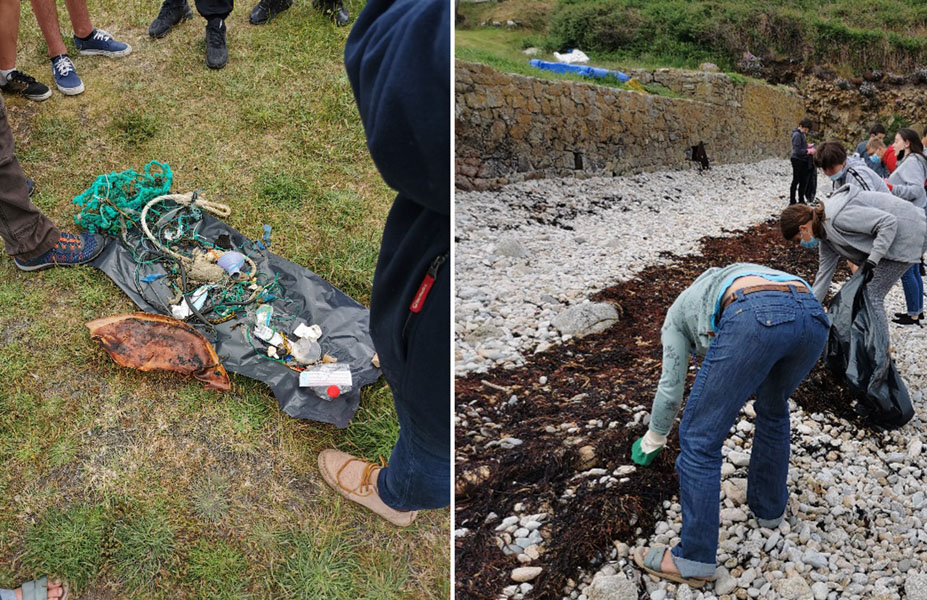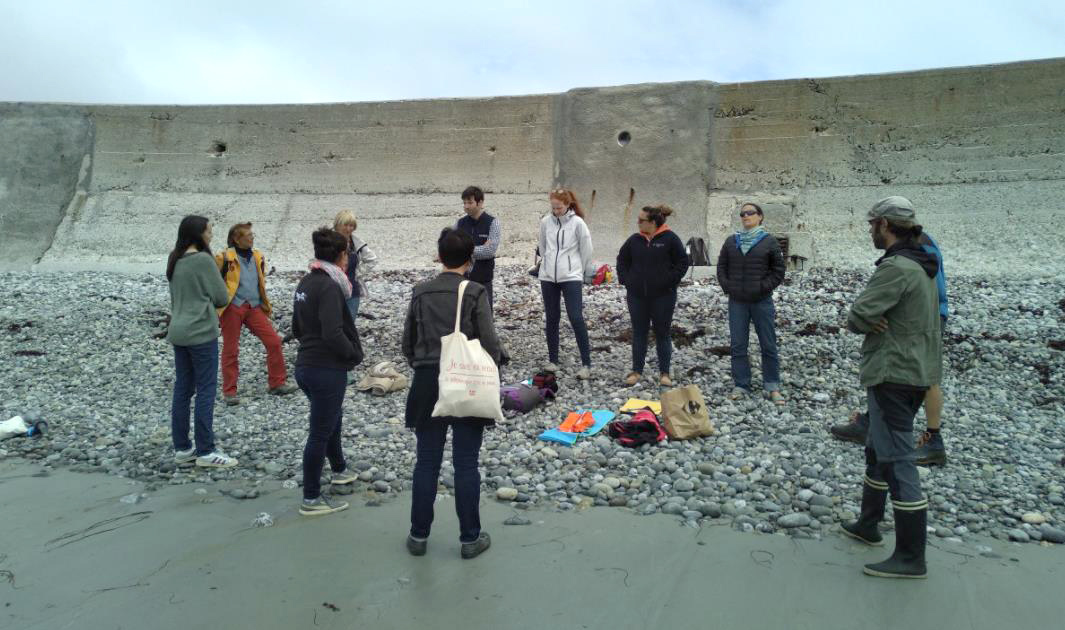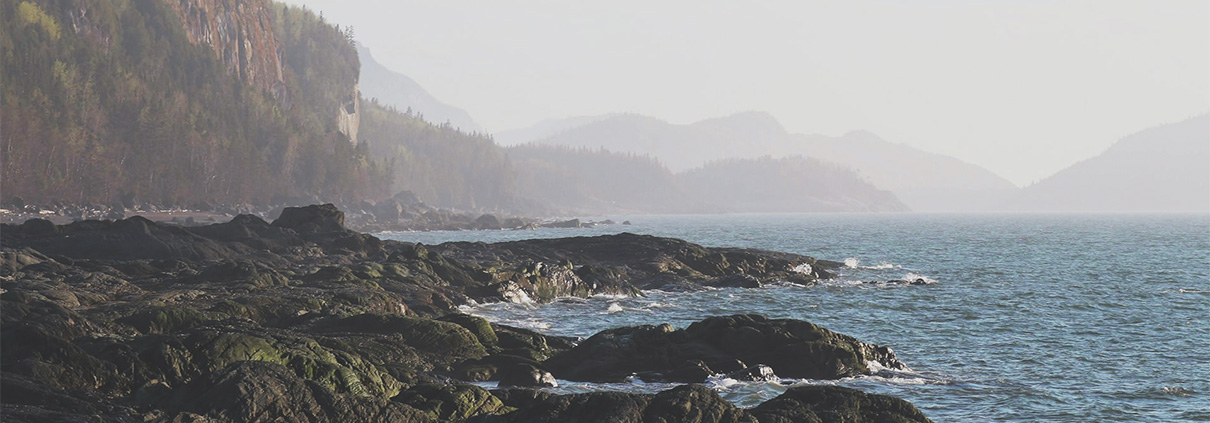MYCTOPHIDAE, a travel in deep seas | A Festival Ressac exhibition
The oceans? A vastness, a wealth and one of the keys to the functioning of life on our planet. And yet the mysteries are still many. In this partially known world, lanternfish or myctophidae, are very abundant from the equator to the coldest areas, from the surface to several hundred metres deep.
Who are they, what do they look like, what are they doing there? How can we unravel the enigma of this environment that is impossible to observe with our eyes?
Led by Gildas Roudaut, some scientists (IRD, CNRS, MNHN, CPS) have initiated a dialogue with a class of Applied Arts (STD2A) of the Vauban High School in Brest.
These exchanges gave rise to an exhibition, MYCTOPHIDAE, presented at the IUEM, and a magazine, La Lanterne, created with the support of the UBO and the IRD as part of the Ressac Festival .
The exhibition can be visited at the Bibiothèque Universitaire du Bouguen (10, av. Victor le Gorgeu, Brest), from 18 November 2019 to 6 January 2020.
It is also available in pDF format (low resolution), on this page.
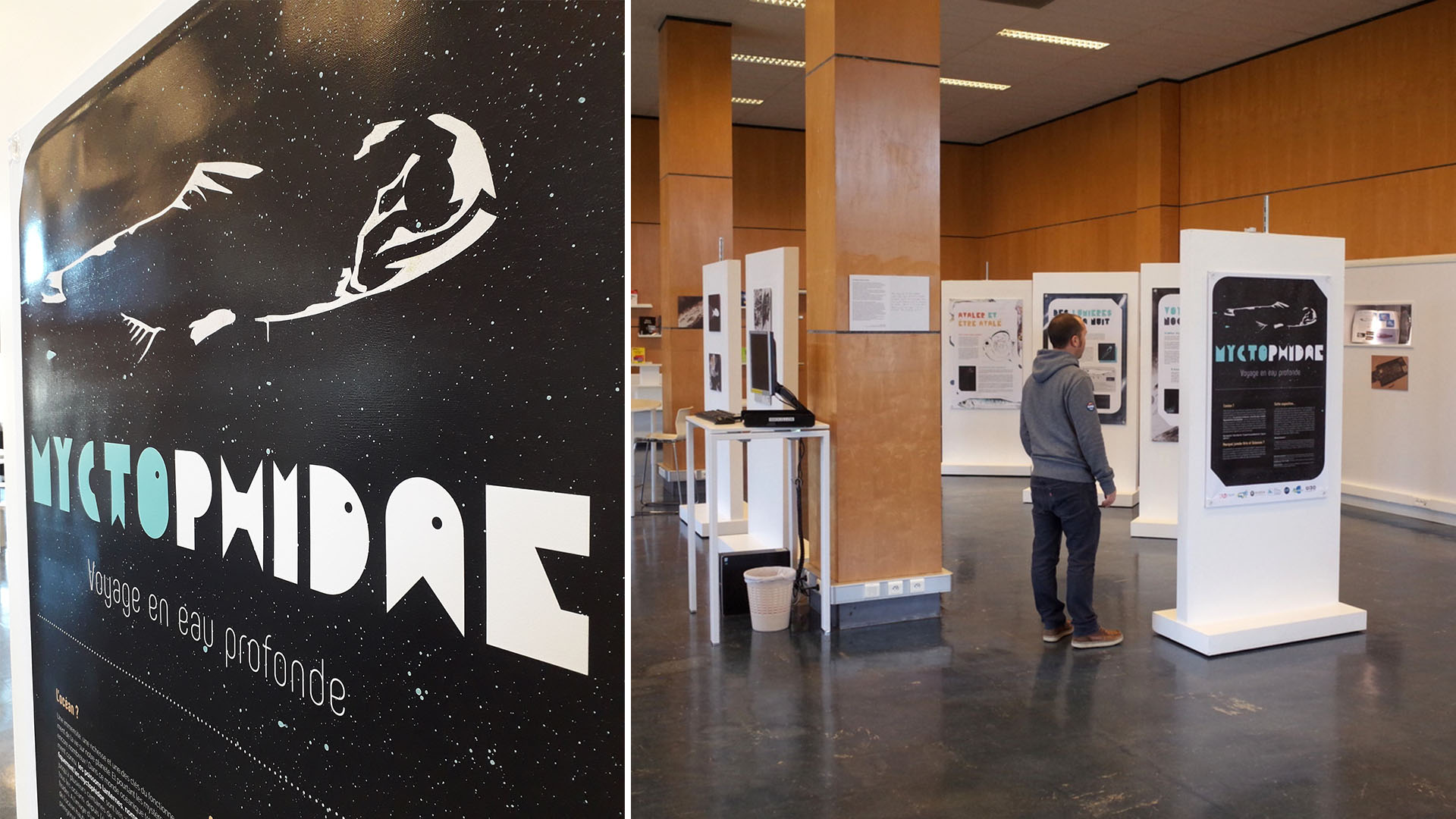
Exposition Myctophidae
The magazine La Lanterne is available for download here.
Credits:
Editing and proofreading: Gildas Roudaut, Jérémie Habasque, Anne Lebourges-Dhaussy, Cindy Dupoux, Élodie Vourey, Anna Conchon, Cédric Cotté, Antoine Choplin, Yves Cherel, Sébastien Hervé
Graphic design and layout: Sébastien Hervé assisted by Fred Grunchec and Pauline Ferrec
Acknowledgements: IRD’s Scientific and Technological Culture Mission, Christine Paillard and Emmanuelle Dilasser
An Arts-and-Sciences exhibition, to be seen until 6 January 2020 at the BU du Bouguen of the UBO (Brest)

